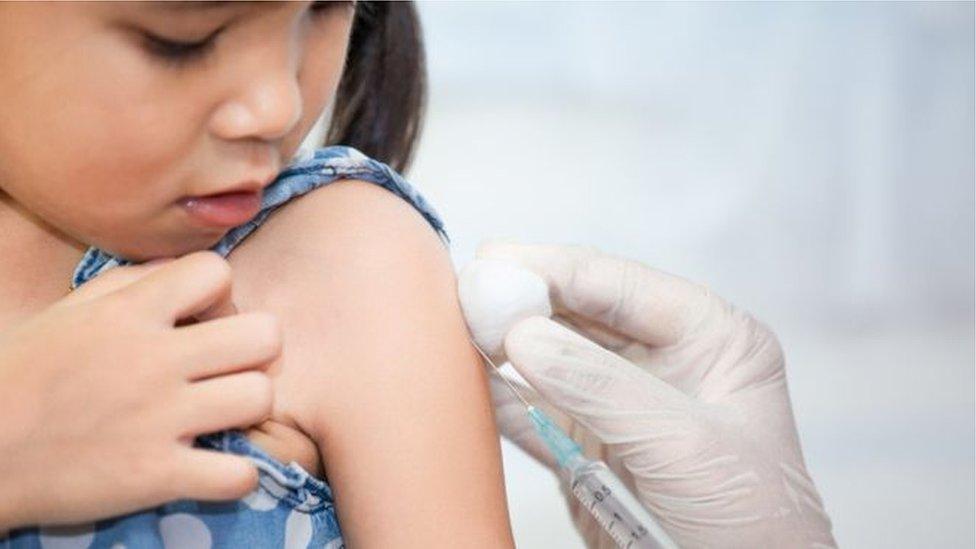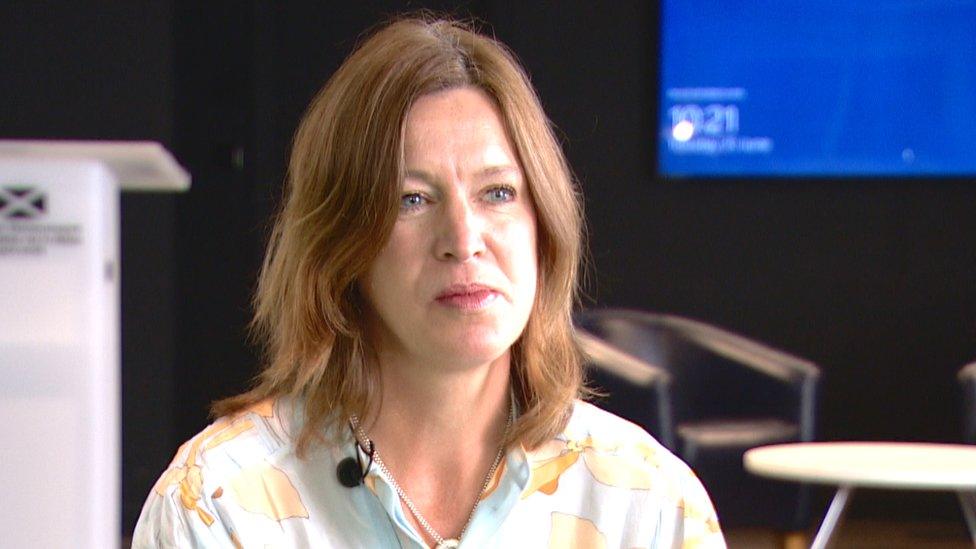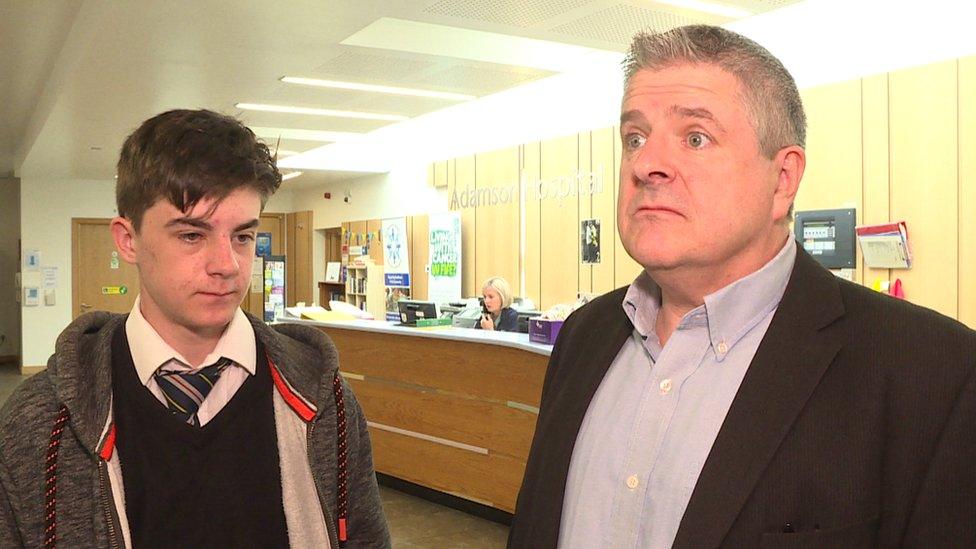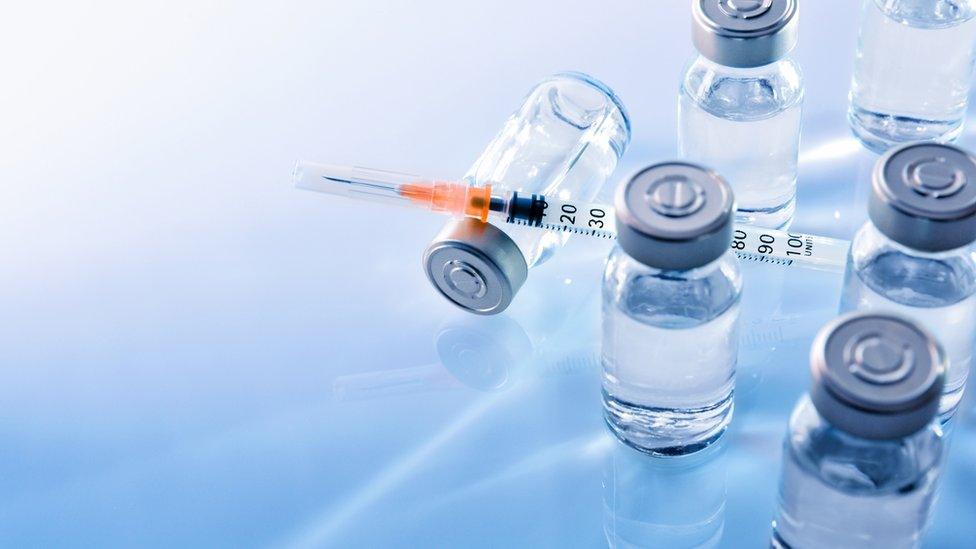MMR vaccination rates in slight fall among children in Scotland
- Published

The number of children in Scotland receiving the MMR vaccine by five years of age has fallen slightly but remains "very high", official NHS figures show., external
By the end of March, the three-month figure was 96.6% - down from 97%.
Uptake rates of one dose of MMR by the age of five have remained above the government's 95% target since 2009.
Scotland's chief medical officer welcomed the figures but urged teenagers heading abroad on holiday to make sure they are fully protected.
Dr Catherine Calderwood said young adults remained vulnerable to a recent global surge in measles as a result of anti-vaccine publicity in the early 2000s.
Second dose
She said: "We are pleased to see the really good statistics in Scotland once again.
"We have been over our 95% target since 2009, so the level of immunity against measles in particular in Scotland is very high.
"People seem to be wanting to come forward and have their vaccines done because they understand how important it is."
Dr Calderwood added that an increase in measles cases around the world should not be ignored.
"There was a period of time about 15 or 20 years ago when our vaccine levels were not as good," she said.
"Those babies at that time are now teenagers and young adults. They may not know that they were not vaccinated or they may not have had the second dose.
"So I would really encourage them if they are travelling abroad, or attending festivals or sporting events where there are lots of people, to check out whether they have been vaccinated and that they are fully protected."

Dr Catherine Calderwood said teenagers and young adults travelling abroad could be vulnerable to measles
The latest vaccination figures show more than 95% of children had received each routine immunisation by the time they were 12 months of age.
Uptake of rotavirus vaccine, which helps protect young children from infection that causes severe diarrhoea and vomiting, was 93.1% by 12 months of age.
This vaccine is given within strict age limits which, according to the NHS Scotland report, "explains the slightly lower uptake rate compared with other vaccines offered in the first year of life".
The figures also show:
By 24 months of age, 94.2% of children had received the Hib/MenC booster vaccine.
The uptake rate for the Pneumococcal Conjugate Vaccine (PCV) booster was also 94.2%.
Uptake of the MenB booster vaccine by 24 months has remained at 93.5%.
Uptake of one dose of MMR vaccine by 24 months of age remained unchanged this quarter at 93.6%.

'We're now happy with the jags'

Jake Sykes' parents chose against having him vaccinated as a baby
Fife teenager Jake Sykes has had his MMR vaccinations at the age of 16 after his parents decided against it when he was a baby.
His father Paul said his son's childhood allergy to nuts, eggs and dairy raised their concerns because some of the vaccines used egg proteins.
In 1998, Andrew Wakefield published a report falsely linking autism and bowel disease to the MMR vaccine.
Even though his paper was discredited and he was struck from the medical register, there was a drop in the number of children vaccinated after his claims.
Mr Sykes, from Cupar, said their fears had now been allayed.
"At the time, we were living in London and there was a fear that MMR might cause autism," he said.
"But that link, I think, has been disproven and now we're happy for him to get the jags.
"With the increase in cases of mumps and measles and things like that, we thought it was a good thing to get it done now."

What is a vaccination?

The NHS says vaccines work by making people produce antibodies to fight disease without actually infecting them with it.
It says the immune system of a vaccinated person who comes into contact with the disease will recognise it, and immediately produce the antibodies to fight it.
According to the health service:
Vaccinations are "quick, safe and extremely effective"
Children who have been vaccinated against a disease can fight it off better
If a child is not vaccinated, they are at higher risk of catching - and becoming very ill from - the illness.
Source: NHS
- Published25 June 2019
